Etinosa Yvonne's Photography Shines Light on the Mental Health of Nigerians Accused of Witchcraft
The Nigerian documentary photographer’s latest exhibit, "It's All in My Head" seeks to create a dialogue around, and empathy for, women and children accused of witchcraft in Nigeria’s cultural tapestry.
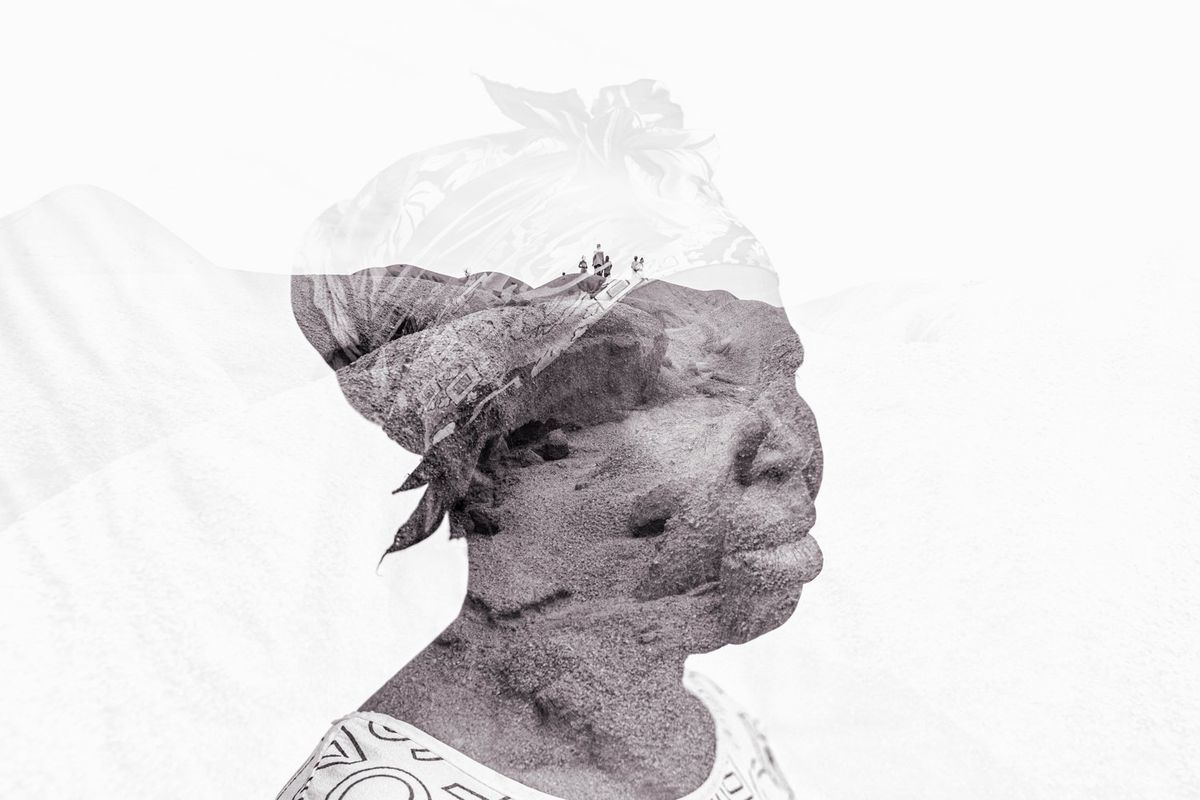
Nigerian documentary photographer Etinosa Yvonne’s latest exhibition It’s All In My Head looks at the mental health of Nigerian women and children who have been accused of witchcraft.
Renowned Nigerian photographer Etinosa Yvonne shares the stories she’s gathered for her National Geographic award-winning exhibition “It’s All In My Head” with the disposition of a woman on a mission. The project, years in the making, has been remolded continuously to reflect the vast ways in which Yvonne has understood how conflict, acts of cruelty, and trauma affect victims and their mental health.
Initially, the self-taught photographer sought to focus on recording how displaced Nigerians coped in the aftermath of the various Boko Haram insurgencies and other traumatic events the country has been afflicted with over its recent history. Now, after spending years with the country’s Internally Displaced Persons (IDP) Council and the United Sexual Reproductive Health Agency, the project has expanded greatly, and Yvonne debuts a remarkably gut-wrenching, and liberating body of work shining a light on how women and children deal with accusations of witchcraft, and the threats against their lives that ensue. Or, as she puts it, “People that are being tortured as a way to correct them.”
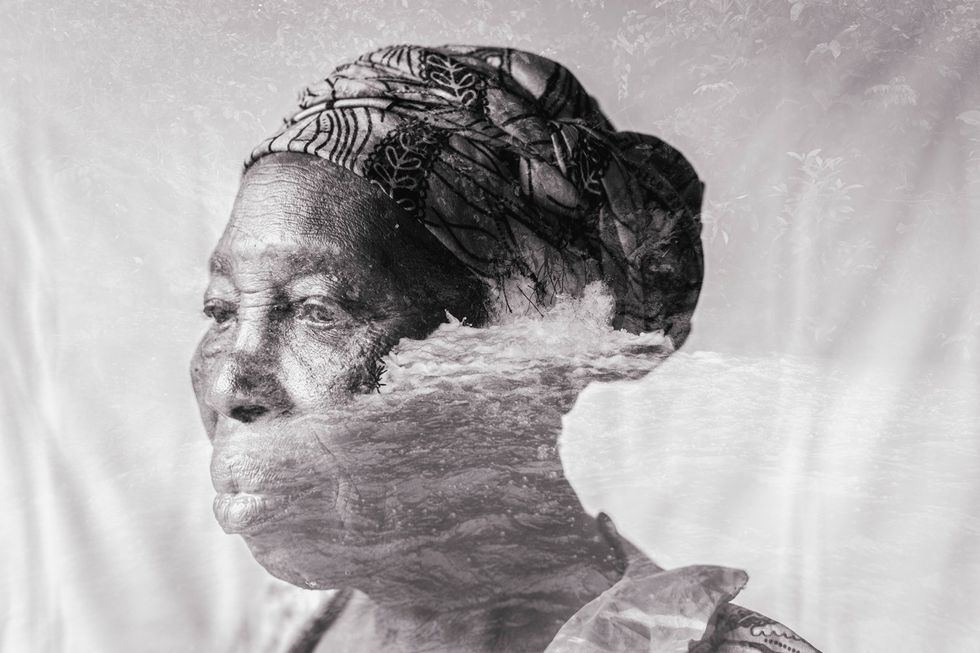
“I grew up in the city,” the Lagos native tells OkayAfrica. “I would hear about insurgencies and IDPs, or that ten people were murdered. But, with the way that it’s presented, you don’t really think of them as people. You don't think about the totality of their existence or connect to what they go through because they’re just people somewhere else. You think it’s terrible, but you don’t understand the extent of how terrible it truly is.”
Yvonne spent months wandering Abuja’s IDP camps photographing people lost within their homelands before the community began to trust her and shared their stories. Men who lived great lives of their own were now one of thirteen cramped into a room that most Westerners wouldn’t let their pets sleep in. She listened to young women speak of repeated miscarriages after having their bodies devastated by those who destroyed their families and their lives. At the time, Yvonne herself could only afford to share a bedroom with her sister, but she says the yearning to amplify these voices manifested the perfect conditions in her life. After earning a theatre degree in 2011, and a run of unfulfilling careers in social media, Yvonne turned to “YouTube University” and in-person photography workshops and found a new path to follow. A course in the technique of double exposure, which allowed the budding creative to play with visual metaphors, opened her up to a world of creative storytelling she hadn’t ever thought possible.
As Yvonne’s objective became more clear, a Facebook profile she had seen in 2017 triggered her commitment to those victimized by someone else’s belief in dark magic. “I remember seeing a lady who would share things about how children were being arrested and even killed as a result of witchcraft,” she says. “And I knew I wanted to do something about it.”
Knowing how she had digested news of a similar nature in the past, and the statistical, detached ways in which it’s often reported, Yvonne focused on the mental health and well-being of those accused. “How do they cope with being called a witch; with being beaten with the matches; with being accused of witchcraft and being abandoned by [their] children? How does that affect them?”
She tells the story of a young woman whose mom and aunt were accused of witchcraft by their community because someone saw them in a dream: “It’s so stupid, you know? It’s stupid, but it’s costing people their lives.” The young lady in question sought out support from a local nonprofit that advocates for the rights of women and children before returning to find her two family members beaten to death. A few days later, her elder sister passed away too from a rapid decline in her health, related to the tragedy.
The work also sparked an internal journey of self-reflection for the photographer, as she had seen firsthand how people could form such beliefs. “I grew up in a Pentecostal church – I used to believe it, too,” she admits. “In fact, when things weren’t working out for my dad, people would come to pray and then say things like, ‘Oh, it’s my mom’s mom that’s responsible for the misfortune.’ And it was something I believed in.”
Yvonne says she had to question a lot of things she grew up learning. “It took me a while to forgive myself for the beliefs I held,” she says. “I like my faith, but I’ve started to break free from some really harmful things that people hide under religion to project.” Moments to acknowledge how shared prayers condemning others can result in the persecution and death of actual people have popped up in a myriad of ways throughout Yvonne’s six-year journey. With a wider and more informed way of understanding Nigeria’s political and social systems, or lack thereof, the photographer has grasped how quickly hope can turn into desperation, and how those in power can use Africa’s vibrant, idiosyncratic way of interpreting life against themselves. “I didn’t realize that some of these things they are ascribing to witchcraft practices are just natural occurrences that, if not for systemic failures in the country, should not be happening. We turn a blind eye to what [leaders] do because they hide under their faith to do these things,” she says.
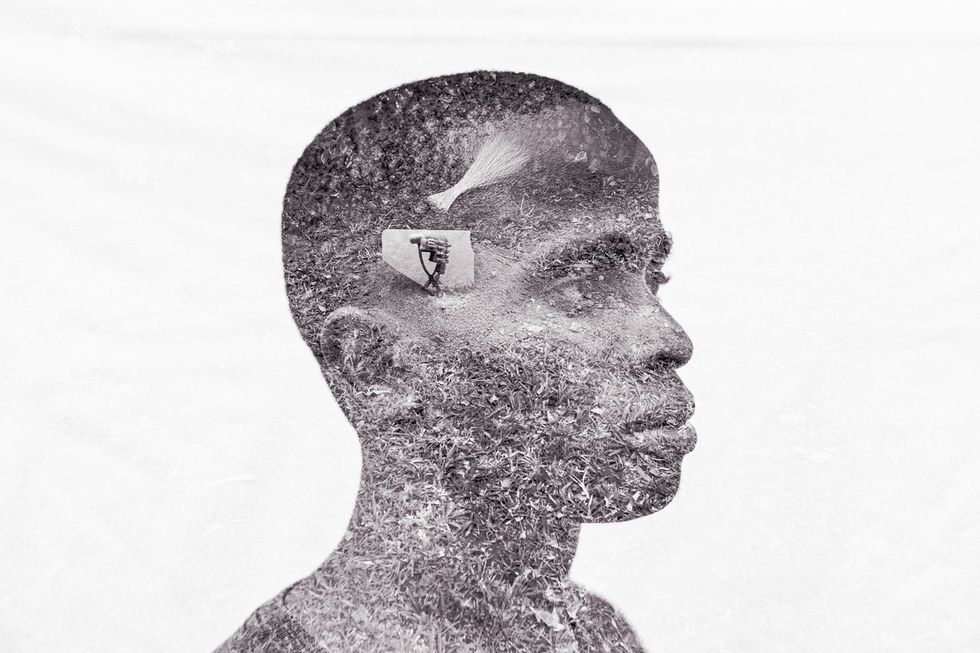
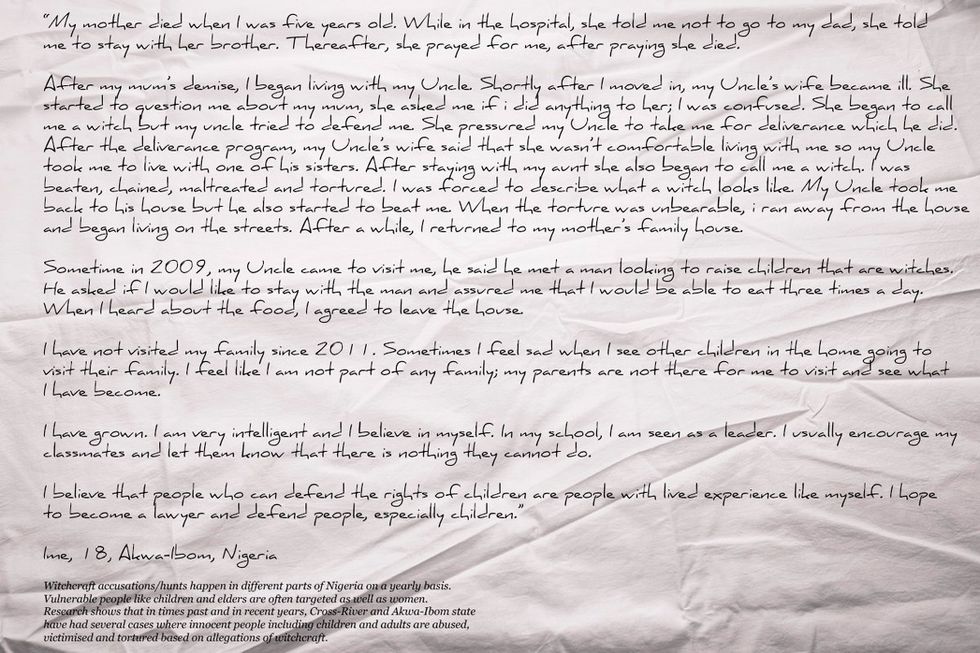
2023 has escorted Yvonne to her dream, as the exhibit’s first stop in Calabar on November 8th nears. Attendees will be given the opportunity to interact with the portraits, words, and voices the photographer captured of victims – across different ages – and their interpretations of the harrowing abuses they have faced. The photographer’s surreal images are only one aspect of the fiercely immersive experience. “There’s the installation, the images with voice recordings from the victims explaining their stories in their own words, and there are sculptures,” she says. “Then, we have a space in the exhibition that honors the lives of people who were killed, with a condolence register.”
There will also be dramatic performances in the market squares of each host city, in an attempt to draw people to join in – taking note of how popular it is for Nigerian churches to stage dramatic interpretations of the Bible in an attempt to arouse audiences.
Arguably, the most ambitious aspect of Yvonne’s project is the town hall meetings – with survivors taking on the role of emcee – that will bring together victims and family members of those lost to accusations of witchcraft in dialogue with community members who may hold discriminatory beliefs, as well as local government officials, and legal practitioners. “The aim is to incentivize and educate where possible,” says Yvonne. “We don’t know what will come out of it. If ten people take away a message, we’ve done something.”
She’s tried to use every avenue she knows of to communicate the importance of this project and the community it aims to serve. But, like any one person attempting to fight ideologies that predate their own existence, anguished thoughts of failure surfaced often. “For a while, I felt like I wasn’t doing enough,” she says. “I used to burden myself with anger and be, almost hateful that people were not angry enough. But, one day I told myself, “You're not the government. You can't do everything."
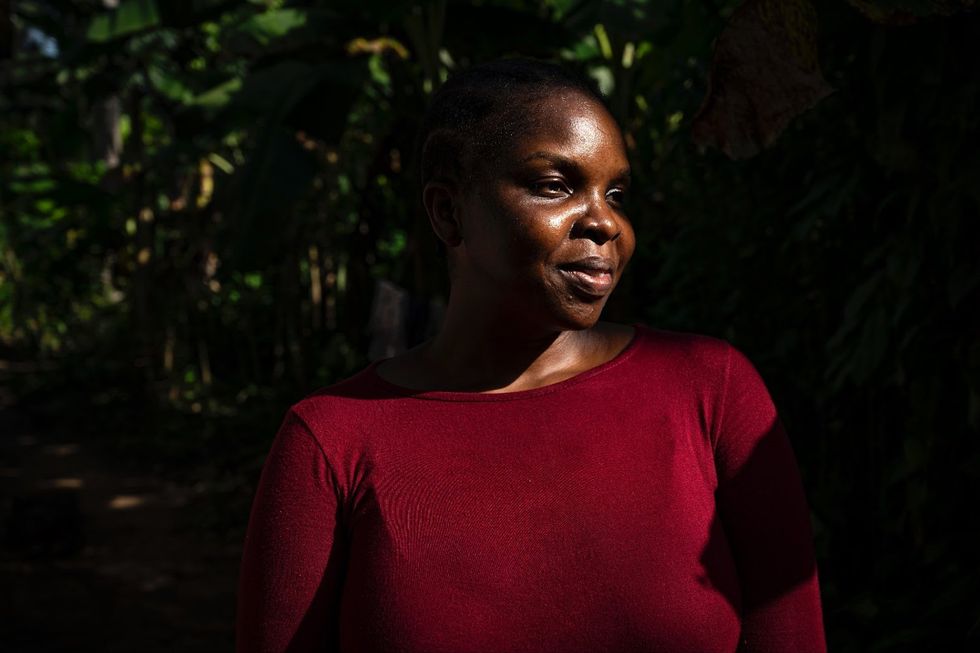
A year of preparation and a grant from the National Geographic Society has the creative feeling confident and grateful for the expedition. And hopeful about what the culmination of her work may lead to in terms of real cultural and legislative shifts in underserved communities: “On a higher level, what we really want are policies put into effect. This particular project serves as a tool of raising awareness, educating, and using art to also transform – on an individual, state, and national level.” It’s been a six-year journey toward Yvonne confronting her own beliefs while pursuing her dream of photographing and uniting Africans who need to be seen and heard – all because of something she saw on Facebook.
It’s All In My Head will be on view at the following locations across Nigeria:
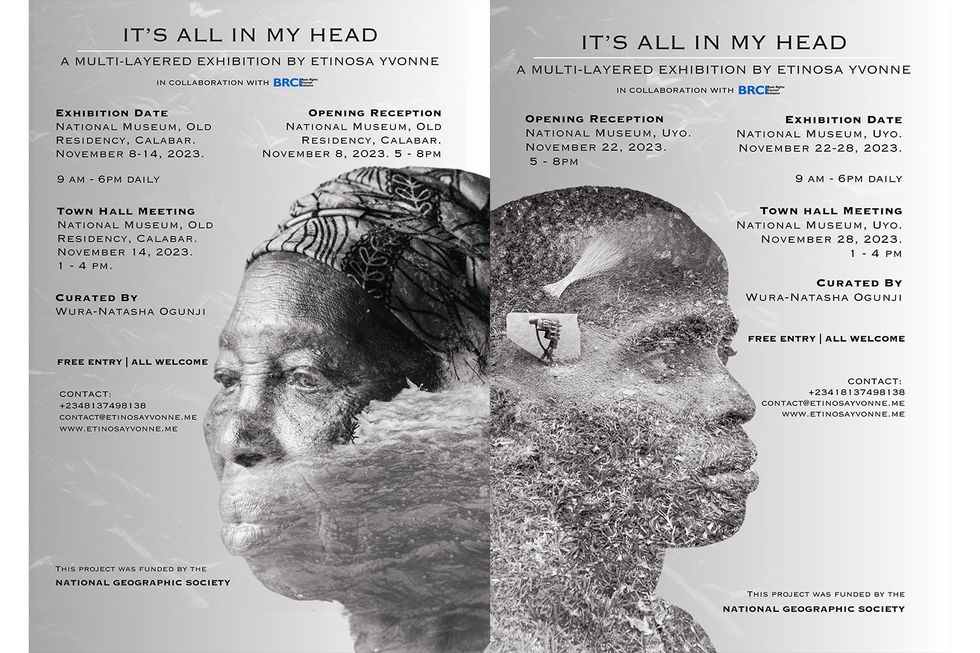
- This Nigerian Visual Artist’s Latest Series Confronts Africa's Child Lynching Problem ›
- 'The Great African Horror': Photographing Depression And Its Effects On African Men And Their Families ›
- In Conversation with Director Rungano Nyoni of BAFTA Award-Winning Debut Film, 'I Am Not A Witch' ›
- 10 African Horror Films to Watch This Halloween ›
- In 'Photographer,' Campbell Addy Makes A Triumphant Return To A Difficult Past - Okayplayer ›
- Photos: Nigerian Photographer Steven Onoja Catures the 'Sound of Pain' - Okayplayer ›
- Heal by Hair Is Tackling Mental Health Crisis in Africa in a Unique Way - Okayplayer ›

